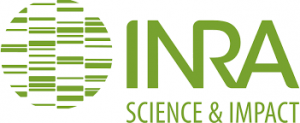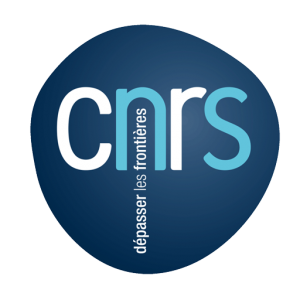About
OBJECTIVES
—————
This workshop aims at promoting discussions and collaborations between biologists (modelers), computer scientists and applied-mathematicians involved in metagenomics and/or metatranscriptomics studies, either in the bioinformatics or statistical aspects of such analysis.
Metagenomics studies refer to analyses based on high-throughput sequencing of environmental samples and microbial ecosystems. Both marker-gene (16S, 18S, ITS, …) and whole-genome strategies will be adressed to cover a wide array of question ranging from quantifying the microbial diversity in order to find structuring factors to assessing the functional role of microbial communities.
The workshop will provide an overview of the state-of-the-art methods currently used in metaomics including comparative metagenomics and metatranscriptomics. At the other end of the spectrum, case-studies with a strong methodological component will illustrate how and when these methods are useful and how they produce new biological knowledge. This includes studies that investigate the shortcomings of mature or novel methods (e.g. for clustering, inference of co-occurrence networks, detection of certain types of interaction between taxa, etc) in real life settings.
SCOPE
——–
The program of this workshop will consist mainly of presentations of refereed papers (30 minutes) and invited talks (50 minutes). A poster session will be also organized. Contributions are welcomed on all aspects about bioinformatics and statistical analyses of metaomics datasets, including, but not limited to:
- new methods, tools or pipelines involved in the characterisation of microbial diversity,
- original methods for taxonomical assignment,
- Metagenomics/metatranscriptomics assembly,
- data reduction,
- comparative metaomics,
- models for community assembly,
- inference of co-occurrence/abundance patterns,
- challenges for tackling the complexity of metaomics datasets.
Note that this workshop focuses mainly on methodological aspects of metagenomics and is not dedicated to bioanalyse result presentations.
KEYNOTES
———
- Nicola Segata (Centre for Integrative Biology, University of Trento, Italy): “Computational metagenomics for large-scale strain-resolved microbiome profiling“
- Vanessa Jurtz (Department for Bio and Health Informatics, Technical University of Denmark): “Identifying bacteriophage sequences in metagenomic sample“
- Léa Siegwald (Institut Pasteur/CRIStAL, Lille) and Ségolène Caboche (Université de Lille/Institut Pasteur de Lille, France): “Analytical biases in targeted metagenomics studies“
PROGRAM
———
Monday 9 October
14h00 – 15h00 : Nicola Segata (Centre for Integrative Biology, University of Trento, Italy)
Computational metagenomics for large-scale strain-resolved microbiome profiling
15h00 – 15h35 : Camille Marchet (IRISA, Rennes, France)
A highly scalable data structure for read similarity computation and its application to marine plankton holobionts [abstract]
15h35 – 16h10 : Vitor Piro (Robert Koch Institute, Berlin, Germany)
Distributed indices for metagenomic big data applications [abstract]
16h10 – 16h40 Coffee Break
16h40-17h15 : Simone Pignotti (Université Marne-la-Vallée, France)
ProPhyle: a phylogeny based metagenomic classifier using Burrows-Wheeler Transform [abstract]
17h15 – 17h50 : Florian Plaza Oñate (Enterome, France)
Abundance-based reconstitution of microbial pan-genomes from whole-metagenome shotgun sequencing data [abstract]
Tuesday 10 October
9h30 – 10h30 : Léa Siegwald (Institut Pasteur/CRIStAL, Lille) and Ségolène Caboche (Université de Lille/Institut Pasteur de Lille, France)
Analytical biases in targeted metagenomics studies
10h30 – 11h05 : Ioannis Nicolis (Université Paris Descartes, France)
A comparison of methods to analyse microbiota profiles between paired samples. Motivating example: faeces storage conditions. [abstract]
11h05 – 11h35 Coffee Break
11h35 – 12h10 : Julien Chiquet (INRA/AgroParisTech, France)
PCA for count data in microbial ecology. [abstract]
12h10 – 12h45 : Noam Shental (The Open University, Israel)
Towards a highly efficient diversity census of the prokaryotic biosphere: a group testing approach.[abstract]
Lunch
14h15-15h15 : Vanessa Jurtz (Department for Bio and Health Informatics, Technical University of Denmark)
Identifying bacteriophage sequences in metagenomic sample
15h15 – 15h50 : Clovis Galiez (Max-Planck Institute for Biophysical Chemistry, Germany)
WIsH: Who is the host? Predicting prokaryotic hosts from metagenomic phage contigs. [abstract]
SUBMISSION
—————-
Please send the abstract to rcam@jouy.inra.fr
All submitted abstracts will be peer-reviewed by the program committee. Submitted abstracts should not exceed 2 pages including bibliography. Abstracts must be written and presented in English. They may describe work that has already been published or that is simultaneously submitted to a journal, conference, or workshop with reefreed proceedings.
REGISTRATION
—————-
There is no registration fee to attend the RCAM worskhop but for security reason and room capacity, the registration is mandatory. For this, fill this registration form. Registration will close on October 2, 2017.
IMPORTANT DATES
—————-
Submission Deadline : August 30, 2017 September 4, 2017 at noon.
Notification: September 9, 2017
Registration deadline : October 2, 2017
Workshop Date: October 9-10, 2017; the worskop will start at 1:30pm on Oct 9.
ORGANIZERS
————
Valentin Loux, INRA/MaIAGE, Jouy-en-Josas, France
Mahendra Mariadassou, INRA/MaIAGE, Jouy-en-Josas, France
Pierre Peterlongo, Inria/IRISA, Rennes, France
Eduardo Rocha, Institut Pasteur, Paris, France
Sophie Schbath, INRA/MaIAGE, Jouy-en-Josas, France
SPONSOR
——————
The workshop is supported by the metaprogramme “Microbial Ecosystems and Metaomics (MEM)” from the French National Institute for Agricultural Research (INRA), by the “GdR Molecular Bioinformatics (GdR BiM)” and by the “Centre de Bioinformatique, Biostatistique et Biologie Intégrative (C3BI)” from Institut Pasteur.



